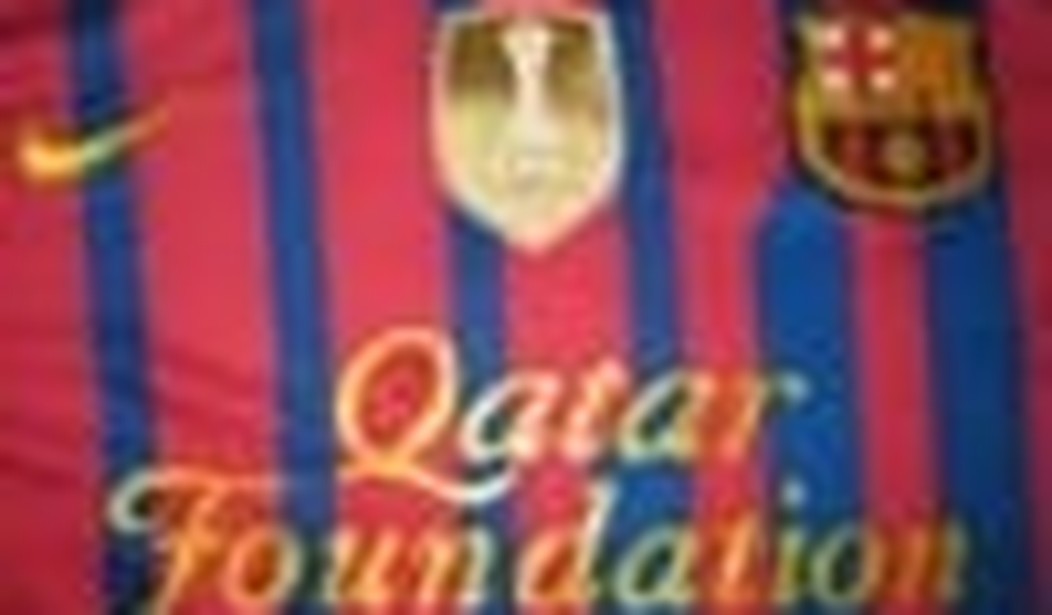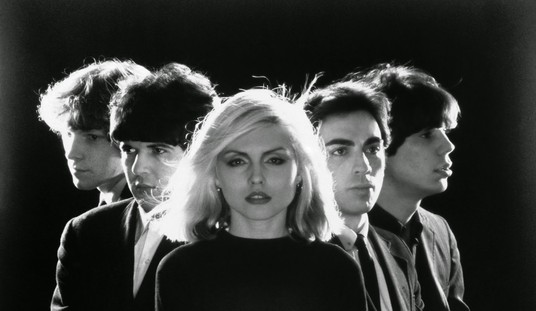In those countries where soccer is known as football — and face it, that’s most of them — one word is guaranteed to recur throughout any conversation on the subject: Barcelona.
Barcelona’s supporters will tell you that their team is more than a word. Mes que un Club (“More than a Club”) is FC Barcelona’s motto, reflecting its self-regarding status as a concept, an idea, a history — even an ethic. For if soccer is the beautiful game, Barcelona supporters will boast, no team better embodies that quality than ours, both on the field and off.
We, they say, are nothing like Europe’s other star teams.
Yes, yes, they’ll add, Barcelona may be a global brand, but it has become so on its own terms. The team remains the most tangible symbol of the elegant capital of Spain’s artsy, trendy, and restive Catalan region. It still celebrates its pivotal role in rousing opposition to General Franco’s regime — the cause of its bitter rivalry with that other Spanish soccer powerhouse, Real Madrid. Its core is composed of local boys cultivated in the Barcelona academy system — while other European teams have obliterated their regional identities by plucking stars from around the world. And while those teams, like England’s Manchester United, are quite happy to sign shirt sponsorship deals with (cue horrified gasp) American insurance companies, Barcelona’s shirts are emblazoned with the logo of UNICEF, the UN agency charged with improving the lot of the world’s most vulnerable children.
For all these reasons and more, Barcelona is especially attractive to the kind of folk who bring to mind Thomas Paine’s scornful phrase about “sunshine patriots.” Their acquaintance with soccer is fleeting. They are instinctively uncomfortable with the game’s embrace of free market economics and, more understandably, the ongoing blight of fan thuggery. Amid such turbulence Barcelona stands out as a beacon, playing out a delightful narrative of athletic progressivism against the reactionary tide.
As with many “narratives,” this one is essentially a myth constructed from nuggets of fact. Indeed, about the only aspect that isn’t artificial is the team’s prowess on the field. Those of you who don’t follow soccer, pay heed: everything you’ve heard about Barcelona’s sheer, breathtaking brilliance is true. Their peerless matrix of playmakers and goalscorers — Iniesta and Xavi, Alves and Pique, Messi and Villa — was on stunning display during their victory in the UEFA Champions League final last month.
None of that dazzling business, however, is of concern to me here. The story beyond the myth is more interesting.
Let’s start with the UNICEF thing. As of next season, a different logo will take its place, thanks to a deal worth nearly $250 million in the most lucrative shirt-sponsorship in soccer history. That logo belongs to the Qatar Foundation, whose airily defined mission is “to prepare the people of Qatar and the region to meet the challenges of an ever-changing world.” When Barcelona reconvenes at its famed Nou Camp stadium following the summer break, expect such Qatar Foundation luminaries as Sheikh Zaki Yamani, the architect of the 1973 OPEC oil embargo, and Yousef Hussain Kamal, the emirate’s current finance minister, to be sitting in the executive suites.
This is not the first time that petrodollars have flowed into soccer’s coffers. Arsenal of north London plays in a stadium called the “Emirates,” thanks to a lucrative deal with the Arab airline of the same name. Manchester City was bought by Sheikh Mansour bin Zayed Al Nahyan, brother of Abu Dhabi’s ruler, for over $400 million. Still, as today’s biggest name in international soccer, Barcelona’s arrangement with the Qatar Foundation is the most spectacular example of both the purchasing power and the political power of the oil sheikhs.
Over the last decade, the alliance between European leftists and recidivist elements in the Middle East has been glaringly apparent at street demonstrations. With the Barcelona deal, it has graduated to a boardroom phenomenon. Yet just as the notion of the Gadhafi Foundation as a purely philanthropic outfit was laughable, so it is with the Qatar Foundation. The Gadhafi Foundation, remember, suckered some of Europe’s most eminent liberal institutions and individuals. Now it’s the turn of the Qatar Foundation to step up — if I may swipe an analogy from baseball — to the plate.
The Qatar Foundation is an arm of a state which has refashioned the traditional model of slavery for the thousands of hapless Asian migrant laborers trapped within its borders. The emirate is also a generous backer of Hamas; the Iranian regime’s propaganda station, Press TV, recently reported that the Hamas leadership may even be relocating to Qatar from Syria. Given that Qatar has been a key base for the Egyptian Islamist leader Sheikh Yousef al Qaradawi, and that its Al Jazeera satellite network has long been a mouthpiece for Hamas, such a move seems eminently plausible.
The Qatar Foundation itself is directly implicated in the financial network of Islamist terror. Professor Hatem Karanshawy, dean of its faculty of Islamic studies, chaired an Islamic Development Bank committee which just awarded a prize for “the promotion of Islamic economics” to the Islamic Foundation in the United Kingdom, a body closely tied to the global Muslim Brotherhood and Pakistan’s Jama’at-e-Islami. The Foundation is also linked with the Union of the Good, an umbrella body of Islamist organizations which includes other ostensibly charitable Qatari institutions, and which financed the pro-Hamas flotilla to Gaza in May last year.
Buying a stake in the world’s most popular sport, through its most august club, provides Qatar’s rulers with an excellent instrument for fending off the criticism that Hamas terrorists, if they didn’t insist upon civilian clothing when fighting, would, like Barcelona’s players, be wearing uniforms embossed with the emirate’s name. Indeed, last year’s successful bid by Qatar to host the 2022 soccer World Cup, a project for which the ruling family enlisted the assistance of Barcelona’s dashing coach, Pep Guardiola, was the investment’s most handsome dividend yet.
Except that the Qataris may have overextended themselves. Right now, soccer’s governing body, FIFA, is mired in a bribes scandal, and the Qataris are up to their necks in it. Already, Theo Zwanziger, Germany’s soccer chief, has called for an investigation into just how this thoroughly nasty little kingdom landed the most coveted prize in international sport.
Will that bounce back onto the Barcelona deal, or even derail it? So far, there’s precious little indication from the club itself that its distinctive version of the Red-Green alliance is to be dumped. However, if this agonized Barcelona supporter is anything to go by, the Nou Camp faithful may feel rather differently — and it is this “army of assorted liberals” that holds the key to the club’s policy.
Maybe, just maybe, we are about to see an isolated example of the European left shrugging off the Islamist embrace. Mes que un Club? We’ll see.









Join the conversation as a VIP Member